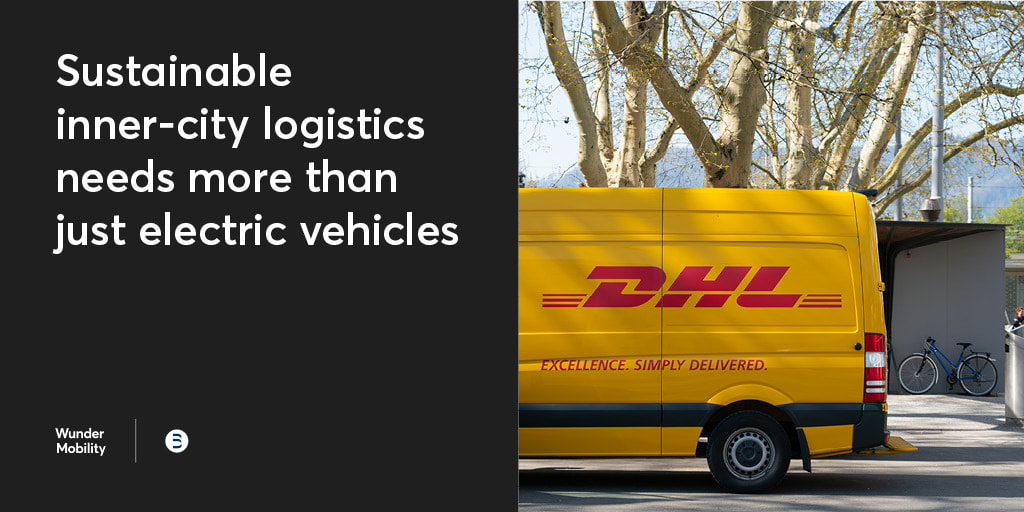Read this article in German.
With four more weeks to the end of the year, Deutsche Post DHL has already delivered more parcels than all of last year. As yellow delivery trucks continue to clog German streets, the company announced that 1.6 billion parcels have already been transported throughout the country to meet increasing demand, surpassing the company’s own record from 2019. Aided primarily by booming e-commerce sales, logistics companies have been breaking their own records year after year for a long time, but this year it happened exceptionally early. In Corona times, most people have migrated to shopping online rather than in a store. According to the Federal Statistical Office, online retail in Germany recorded 21.2 percent higher sales in real terms year-on-year in September 2020. With Black Friday week just having ended, the peak period for Christmas shopping has already kickstarted in Hamburg as well. With this corona induced boom in e-commerce, the Hamburg parcel service Hermes expects more than 35 million shipments in the next three weeks. This is almost a third of the expected total of 120 million parcels and packages in the peak season from October to December.
While discussions around traffic problems due to high volumes of deliveries have been going on for some time now, public authorities continue their struggle to identify the best way forward. This lack of responsibility towards the orchestration of different market players is having a decisive impact on the solution definition. While emissions can be reduced to a large extent by using vehicles with alternative propulsion systems, these new technologies will not solve the most complex problem of urban traffic: congestion. The numbers around motorized traffic have reached dimensions that will induce the collapse of its infrastructure if left unchecked. Measures such as restrictions on the number of trips can be used to motivate cross-company logistics co-operations, but more importantly, implementation of standardized fundamentals on national levels is needed in order to succeed with sustainable frameworks.
Policymakers can set targets, framework conditions, and create incentives but multi-sectoral collaboration is necessary to achieve successful self-sustaining facilities throughout cities in Germany. The use of micro-depots (small locations in the heart of the city) is a prerequisite for the delivery by smaller vessels such as bikes but inner-city areas are not suitable for logistical hubs as they are too expensive. Cities and municipalities can intervene by providing land themselves. However, since the logistics supply chain in each city is rarely by a single provider, information networking of multiple players as well as public authorities will play a more important role in maximizing the efficiency of cities.
The case of creating an overarching municipal player to manage and coordinate last mile city logistics can be made on the basis of the sheer variety of topics that micro-hubs and inner-city logistics require in the Free and Hanseatic City of Hamburg. Functions such as strengthening exclusive zones for zero-emission vehicles are handled by the department of road traffic, whereas expanding the cycle path network which is necessary to include freight bikes is subject to the authority for traffic and mobility. Furthermore, the expansion of the electrical distribution networks for charging infrastructure is regulated amongst others by the authorities for civil engineering offices. While a provider-neutral digital delivery platform could revolutionize city logistics, the legal review and introduction of delivery concessions would have to be applied by the department Port and Logistics at the Authority for Economics and Innovation in Hamburg. Lastly, the process to define construction standards for micro-hubs and integration into urban planning must be authorized according to the German Building Use Ordinance, which has no correlation to any logistical department within the city authorities.
Keeping in mind the fact that intransparent administrative structures within cities provide challenges of their own, international logistics companies face massive hurdles due to such intricate differences in almost 11.000 municipalities across Germany. The establishment of a national steering committee is not just important, but necessary to provide standardized information for central urban contact points and set national standards. It is crucial for interdisciplinary projects to receive government contribution in terms of expertise as well as scientific support. Ensuring standardized and efficient approval procedures at the national level for innovative concepts will go a long way in the development of sustainable cities especially when novelties such as autonomous delivery vehicles become mainstream.
